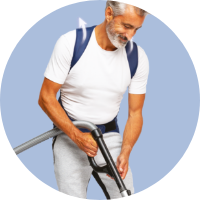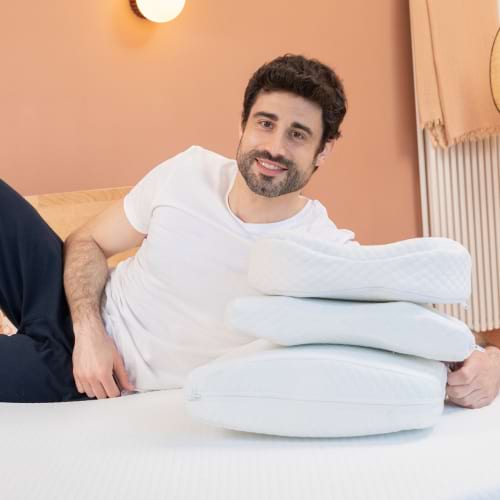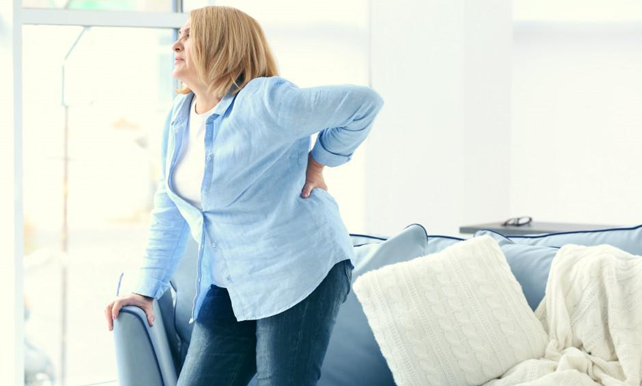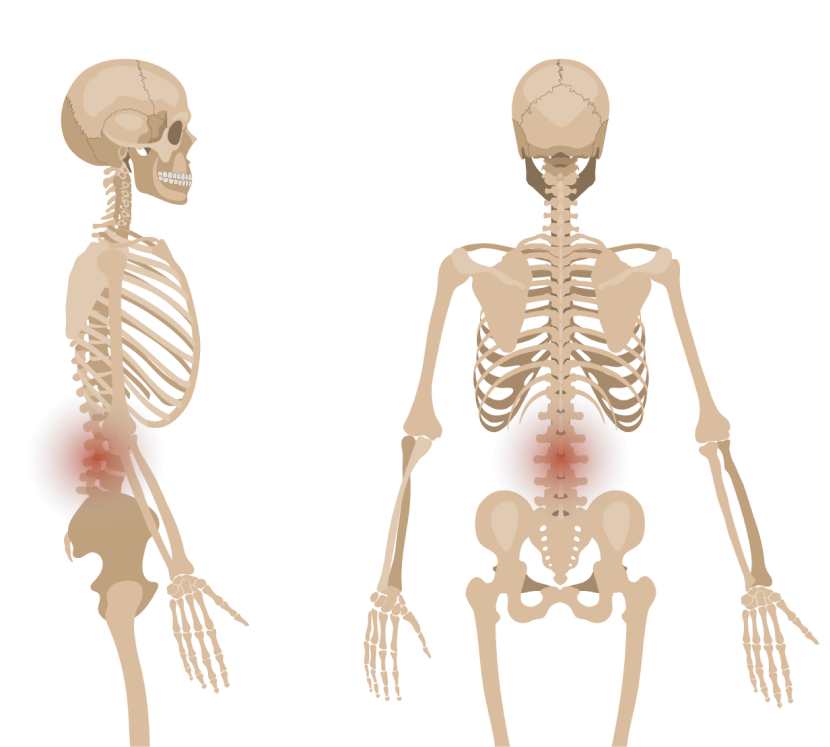- Necessary cookies help make a website usable by enabling basic functions like page navigation and access to secure areas of the website. The website cannot function properly without these cookies.
- Calendly5Learn more about this provider__cf_bmThis cookie is used to distinguish between humans and bots. This is beneficial for the website, in order to make valid reports on the use of their website.__cfruidThis cookie is a part of the services provided by Cloudflare - Including load-balancing, deliverance of website content and serving DNS connection for website operators._calendly_sessionIf consent is given by the visitor, this cookie allows the website to add events into the visitor's calendar._cfuvidThis cookie is a part of the services provided by Cloudflare - Including load-balancing, deliverance of website content and serving DNS connection for website operators.referrer_user_idNecessary for the website's booking functionality.
- Criteo1Learn more about this provideroptoutIdentifies if the visitor has deselected any cookies, trackers or other audience targeting tools.
- Google2Learn more about this provider
Some of the data collected by this provider is for the purposes of personalization and measuring advertising effectiveness.
rc::aThis cookie is used to distinguish between humans and bots. This is beneficial for the website, in order to make valid reports on the use of their website.rc::cThis cookie is used to distinguish between humans and bots. - ID51Learn more about this providergdprDetermines whether the visitor has accepted the cookie consent box. This ensures that the cookie consent box will not be presented again upon re-entry.
- Nativo1Learn more about this provideropt_outUsed to detect if the visitor has accepted the marketing category in the cookie banner. This cookie is necessary for GDPR-compliance of the website.
- Pinterest1Learn more about this providerar_debugChecks whether a technical debugger-cookie is present.
- SurveyMonkey1Learn more about this providerauthRegisters whether the user is logged in. This allows the website owner to make parts of the website inaccessible, based on the user's log-in status.
- cdn.signalfx.com1_splunk_rum_sidDetects and logs potential errors on third-party provided functions on the website.
- eur.checkout.percko.com2cart_currencyThe cookie is necessary for the secure checkout and payment function on the website. This function is provided by shopify.com.secure_customer_sigThis cookie is used to store customer credentials securely when processing a purchase on the website - the cookie is essential in making a secure online transaction.
- eur.checkout.percko.com
tagging.percko.com
consent.cookiebot.com3CookieConsent [x3]Stores the user's cookie consent state for the current domain - percko.com1_tracking_consentStores the user's cookie consent state for the current domain
- tagging.percko.com1_set_cookieThis cookie determines whether the browser accepts cookies.
- Calendly
- Preference cookies enable a website to remember information that changes the way the website behaves or looks, like your preferred language or the region that you are in.
- Callpage3Learn more about this providercp_widget_sessionNecessary for the functionality of the website's chat-box function.cp_widget_geo_responseSaves the user's current geographical location based on the user's IP address.callpage-widget-versionUsed to determine when and where certain pop-ups on the website should be presented for the user and remember whether the user has closed these, to keep them from showing multiple times.
- Pendo1Learn more about this providerdata/guide.gif/#-#-#-#-#Pending
- eur.checkout.percko.com1localizationHolds the users timezone.
- www.percko.com1@@scroll#Pending
- Callpage
- Statistic cookies help website owners to understand how visitors interact with websites by collecting and reporting information anonymously.
- Appnexus1Learn more about this providersegRegisters statistical data on users' behaviour on the website. Used for internal analytics by the website operator.
- Calendly1Learn more about this providerdd_cookie_test_#Registers data on visitors' website-behaviour. This is used for internal analysis and website optimization.
- Callpage1Learn more about this providercp_metricsRegisters statistical data on users' behaviour on the website. Used for internal analytics by the website operator.
- Media.net2Learn more about this providercksync.phpThis cookie is used to determine if cookie data synchronization is enabled or disabled – cookie data synchronization is used to synchronize and gather visitor data on several domains.visitor-idThis cookie is used to collect information on the visitor. This information will be stored for internal analytics at the website's operator – Internal analytics is used by websites to optimize their domains.
- Neustar1Learn more about this providerabThis cookie is used by the website’s operator in context with multi-variate testing. This is a tool used to combine or change content on the website. This allows the website to find the best variation/edition of the site.
- Pendo2Learn more about this providerpendo_cdRegisters statistical data on users' behaviour on the website. Used for internal analytics by the website operator.data/ptm.gif/4cfbcefc-fcf9-4b66-5dc6-9b0d81bb07a9Registers statistical data on users' behaviour on the website. Used for internal analytics by the website operator.
- Segment2Learn more about this providerajs_anonymous_idThis cookie is used to identify a specific visitor - this information is used to identify the number of specific visitors on a website.ajs_anonymous_idThis cookie is used to count how many times a website has been visited by different visitors - this is done by assigning the visitor an ID, so the visitor does not get registered twice.
- SurveyMonkey2Learn more about this providerapex__smGathers information on the user’s interaction with the SurveyMonkey-Widget on the website, for statistical analysis and website optimization.sm_recGathers information on the user’s interaction with the SurveyMonkey-Widget on the website, for statistical analysis and website optimization.
- cdn.sprig.com1userleap.idsThis cookie is set to make split-tests on the website, which optimizes the website's relevance towards the visitor – the cookie can also be set to improve the visitor's experience on a website.
- tagging.percko.com1gtmBrowserIdThis cookie is used to determine if the visitor has visited the website before, or if it is a new visitor on the website.
- Appnexus
- Marketing cookies are used to track visitors across websites. The intention is to display ads that are relevant and engaging for the individual user and thereby more valuable for publishers and third party advertisers.
- Meta Platforms, Inc.2Learn more about this providerlastExternalReferrerDetects how the user reached the website by registering their last URL-address.lastExternalReferrerTimeDetects how the user reached the website by registering their last URL-address.
- 1rx.io
unrulymedia.com2_rxuuid [x2]Sets a unique ID for the visitor, that allows third party advertisers to target the visitor with relevant advertisement. This pairing service is provided by third party advertisement hubs, which facilitates real-time bidding for advertisers. - Adobe Inc.3Learn more about this providerdemconf.jpgSets a unique ID for the visitor, that allows third party advertisers to target the visitor with relevant advertisement. This pairing service is provided by third party advertisement hubs, which facilitates real-time bidding for advertisers.demdexVia a unique ID that is used for semantic content analysis, the user's navigation on the website is registered and linked to offline data from surveys and similar registrations to display targeted ads.dpmSets a unique ID for the visitor, that allows third party advertisers to target the visitor with relevant advertisement. This pairing service is provided by third party advertisement hubs, which facilitates real-time bidding for advertisers.
- Appnexus4Learn more about this provideranjRegisters a unique ID that identifies a returning user's device. The ID is used for targeted ads.setuidThis cookie is set by the audience manager of the website to determine the time and frequencies of visitor data synchronization - cookie data synchronization is used to synchronize and gather visitor data from several websites.uuid2Registers a unique ID that identifies a returning user's device. The ID is used for targeted ads.XANDR_PANIDThis cookie registers data on the visitor. The information is used to optimize advertisement relevance.
- Bidswitch1Learn more about this providersyncCollects data on user behaviour and interaction in order to optimize the website and make advertisement on the website more relevant.
- Casale Media4Learn more about this providerCMIDCollects visitor data related to the user's visits to the website, such as the number of visits, average time spent on the website and what pages have been loaded, with the purpose of displaying targeted ads.CMPROCollects data on visitor behaviour from multiple websites, in order to present more relevant advertisement - This also allows the website to limit the number of times that they are shown the same advertisement.CMPSCollects visitor data related to the user's visits to the website, such as the number of visits, average time spent on the website and what pages have been loaded, with the purpose of displaying targeted ads.rumCollects data related to the user's visits to the website, such as the number of visits, average time spent on the website and what pages have been loaded, with the purpose of displaying targeted ads.
- Criteo7Learn more about this providercto_bundle [x2]Presents the user with relevant content and advertisement. The service is provided by third-party advertisement hubs, which facilitate real-time bidding for advertisers.uidCollects visitor data related to the user's visits to the website, such as the number of visits, average time spent on the website and what pages have been loaded, with the purpose of displaying targeted ads.cto_tld_test [x2]Used to identify the visitor across visits and devices. This allows the website to present the visitor with relevant advertisement - The service is provided by third party advertisement hubs, which facilitate real-time bidding for advertisers.cto_bundlePresents the user with relevant content and advertisement. The service is provided by third-party advertisement hubs, which facilitate real-time bidding for advertisers.criteo_write_testSets a unique ID for the visitor, that allows third party advertisers to target the visitor with relevant advertisement. This pairing service is provided by third party advertisement hubs, which facilitates real-time bidding for advertisers.
- Google1Learn more about this provider
Some of the data collected by this provider is for the purposes of personalization and measuring advertising effectiveness.
ads/ga-audiencesUsed by Google AdWords to re-engage visitors that are likely to convert to customers based on the visitor's online behaviour across websites. - ID56Learn more about this providercallbackCollects data on visitor behaviour from multiple websites, in order to present more relevant advertisement - This also allows the website to limit the number of times that they are shown the same advertisement.carPresents the user with relevant content and advertisement. The service is provided by third-party advertisement hubs, which facilitate real-time bidding for advertisers.cfSets a unique ID for the visitor, that allows third party advertisers to target the visitor with relevant advertisement. This pairing service is provided by third party advertisement hubs, which facilitates real-time bidding for advertisers.cipPresents the user with relevant content and advertisement. The service is provided by third-party advertisement hubs, which facilitate real-time bidding for advertisers.cnacPresents the user with relevant content and advertisement. The service is provided by third-party advertisement hubs, which facilitate real-time bidding for advertisers.gppPending
- Improve Digital1Learn more about this providermatchSets a unique ID for the visitor, that allows third party advertisers to target the visitor with relevant advertisement. This pairing service is provided by third party advertisement hubs, which facilitates real-time bidding for advertisers.
- Klois1Learn more about this providerswRegisters data on visitors from multiple visits and on multiple websites. This information is used to measure the efficiency of advertisement on websites.
- Media.net2Learn more about this providerdata-cPresents the user with relevant content and advertisement. The service is provided by third-party advertisement hubs, which facilitate real-time bidding for advertisers.data-c-tsCollects data on the user across websites - This data is used to make advertisement more relevant.
- Microsoft7Learn more about this provider_uetsidUsed to track visitors on multiple websites, in order to present relevant advertisement based on the visitor's preferences._uetsid_expContains the expiry-date for the cookie with corresponding name._uetvidUsed to track visitors on multiple websites, in order to present relevant advertisement based on the visitor's preferences._uetvid_expContains the expiry-date for the cookie with corresponding name.MUIDUsed widely by Microsoft as a unique user ID. The cookie enables user tracking by synchronising the ID across many Microsoft domains._uetsidCollects data on visitor behaviour from multiple websites, in order to present more relevant advertisement - This also allows the website to limit the number of times that they are shown the same advertisement._uetvidUsed to track visitors on multiple websites, in order to present relevant advertisement based on the visitor's preferences.
- Nativo1Learn more about this providersuid/1017Presents the user with relevant content and advertisement. The service is provided by third-party advertisement hubs, which facilitate real-time bidding for advertisers.
- Neustar1Learn more about this provideradscores/g.pixelPresents the user with relevant content and advertisement. The service is provided by third-party advertisement hubs, which facilitate real-time bidding for advertisers.
- Pendo1Learn more about this providerpendo_tabIdCollects data on the user across websites - This data is used to make advertisement more relevant.
- Pinterest2Learn more about this provider_pinterest_ct_uaUsed by Pinterest to track the usage of services.v3/Used by Pinterest to track the usage of services.
- Segment5Learn more about this provider__tld__Used to track visitors on multiple websites, in order to present relevant advertisement based on the visitor's preferences.ajs_group_idThis cookie is used to assign specific visitors into segments, this segmentation is based on visitor behavior on the website - the segmentation can be used to target larger groups.ajs_user_idThis cookie is used to collect data on the visitor's behavior on the website - this information can be used to assign the visitor to a visitor segment, based on common preferences.ajs_group_idCollects data on visitors. This information is used to assign visitors into segments, making website advertisement more efficient.ajs_user_idCollects data on visitors' preferences and behaviour on the website - This information is used make content and advertisement more relevant to the specific visitor.
- Sirdata3Learn more about this providernewuRegisters a unique ID that identifies the user's device during return visits across websites that use the same ad network. The ID is used to allow targeted ads.SDDANRegisters a unique ID that identifies the user's device during return visits across websites that use the same ad network. The ID is used to allow targeted ads.techcookieCollects data on user behaviour and interaction in order to optimize the website and make advertisement on the website more relevant.
- SurveyMonkey1Learn more about this providerep#Saves user states across page requests when completing a web-based survey.
- Teads1Learn more about this providerumUsed to identify the visitor across visits and devices. This allows the website to present the visitor with relevant advertisement - The service is provided by third party advertisement hubs, which facilitate real-time bidding for advertisers.
- Telaria2Learn more about this providertv_UICRCollects information on user behaviour on multiple websites. This information is used in order to optimize the relevance of advertisement on the website.tvidPresents the user with relevant content and advertisement. The service is provided by third-party advertisement hubs, which facilitate real-time bidding for advertisers.
- Triplelift1Learn more about this providerxuidPresents the user with relevant content and advertisement. The service is provided by third-party advertisement hubs, which facilitate real-time bidding for advertisers.
- Twiago2Learn more about this providerdeuxesse_uxidSets a unique ID for the visitor, that allows third party advertisers to target the visitor with relevant advertisement. This pairing service is provided by third party advertisement hubs, which facilitates real-time bidding for advertisers.rtb/getusermatch.phpSets a unique ID for the visitor, that allows third party advertisers to target the visitor with relevant advertisement. This pairing service is provided by third party advertisement hubs, which facilitates real-time bidding for advertisers.
- adnxs.com
criteo.com
eur.checkout.percko.com3receive-cookie-deprecation [x3]Collects information on user behaviour on multiple websites. This information is used in order to optimize the relevance of advertisement on the website. - connect.facebook.net
percko.com2_fbp [x2]Used by Facebook to deliver a series of advertisement products such as real time bidding from third party advertisers. - exchange.mediavine.com5am_tokensPresents the user with relevant content and advertisement. The service is provided by third-party advertisement hubs, which facilitate real-time bidding for advertisers.am_tokens_eu-v1Presents the user with relevant content and advertisement. The service is provided by third-party advertisement hubs, which facilitate real-time bidding for advertisers.criteoPresents the user with relevant content and advertisement. The service is provided by third-party advertisement hubs, which facilitate real-time bidding for advertisers.mv_tokensSets a unique ID for the visitor, that allows third party advertisers to target the visitor with relevant advertisement. This pairing service is provided by third party advertisement hubs, which facilitates real-time bidding for advertisers.mv_tokens_eu-v1Sets a unique ID for the visitor, that allows third party advertisers to target the visitor with relevant advertisement. This pairing service is provided by third party advertisement hubs, which facilitates real-time bidding for advertisers.
- percko.com5_landing_pageStores visitors' navigation by registering landing pages - This allows the website to present relevant products and/or measure their advertisement efficiency on other websites._orig_referrerThis cookie is used to collect information on a visitor. This information will become an ID string with information on a specific visitor – ID information strings can be used to target groups with similar preferences, or can be used by third-party domains or ad-exchanges._shopify_sCollects data on user behaviour and interaction in order to optimize the website and make advertisement on the website more relevant._shopify_yCollects data on user behaviour and interaction in order to optimize the website and make advertisement on the website more relevant._ttpUsed by the social networking service, TikTok, for tracking the use of embedded services.
- tagging.percko.com3_gaUsed to send data to Google Analytics about the visitor's device and behavior. Tracks the visitor across devices and marketing channels._ga_#Used to send data to Google Analytics about the visitor's device and behavior. Tracks the visitor across devices and marketing channels._gcl_auUsed by Google AdSense for experimenting with advertisement efficiency across websites using their services.
- www.percko.com1smcx_#_last_shown_atPending
- Meta Platforms, Inc.
- Unclassified cookies are cookies that we are in the process of classifying, together with the providers of individual cookies.
- Calendly1Learn more about this provider_cachePending
- Callpage1Learn more about this providerPLEr7m6VY4Pending
- Click In Text2Learn more about this providermySimsNetworkPendingRLOGPending
- Klois1Learn more about this providerapicitPending
- Leadsmonitor1Learn more about this provider_lm_idPending
- Pendo6Learn more about this provider_pendo_guides_blocked.4cfbcefc-fcf9-4b66-5dc6-9b0d81bb07a9Pending_pendo_meta.01234567-89ab-cdef-0123-456789abcdefPending_pendo_sessionId.4cfbcefc-fcf9-4b66-5dc6-9b0d81bb07a9Pending_pendo_utm.4cfbcefc-fcf9-4b66-5dc6-9b0d81bb07a9Pending_pendo_visitorId.4cfbcefc-fcf9-4b66-5dc6-9b0d81bb07a9Pendingprevious_page_loadsPending
- SurveyMonkey2Learn more about this providerCX_406842716Pendingsm_dcPending
- cdn.jsdelivr.net171509674374Pending1515153744Pending1600712870Pending1654642499Pending1947492402Pending2020867892Pending511405265Pending753246003PendingA127236349PendingA1466154260PendingA161959194PendingA1891425934PendingA2027993154PendingA253825173PendingA259411499PendingA353091446PendingA560103636Pending
- cdn.signalfx.com1browser_instance_idPending
- cdn.sprig.com4sprigReplay#chunkUploadsPendingsprigReplay#eventsPendingsprigReplay#pendingCapturesPendingsprig.anon.env.vid.mapPending
- datnova.com2ishumanPendingtech-cookiePending
- getalma.eu1alma_contextPending
- www.percko.com2checkoutIDPendingselectedCountryPending
- Calendly
The law states that we can store cookies on your device if they are strictly necessary for the operation of this site. For all other types of cookies we need your permission.
This site uses different types of cookies. Some cookies are placed by third party services that appear on our pages.
You can at any time change or withdraw your consent from the Cookie Declaration on our website.
Learn more about who we are, how you can contact us and how we process personal data in our Privacy Policy.
Please state your consent ID and date when you contact us regarding your consent.





